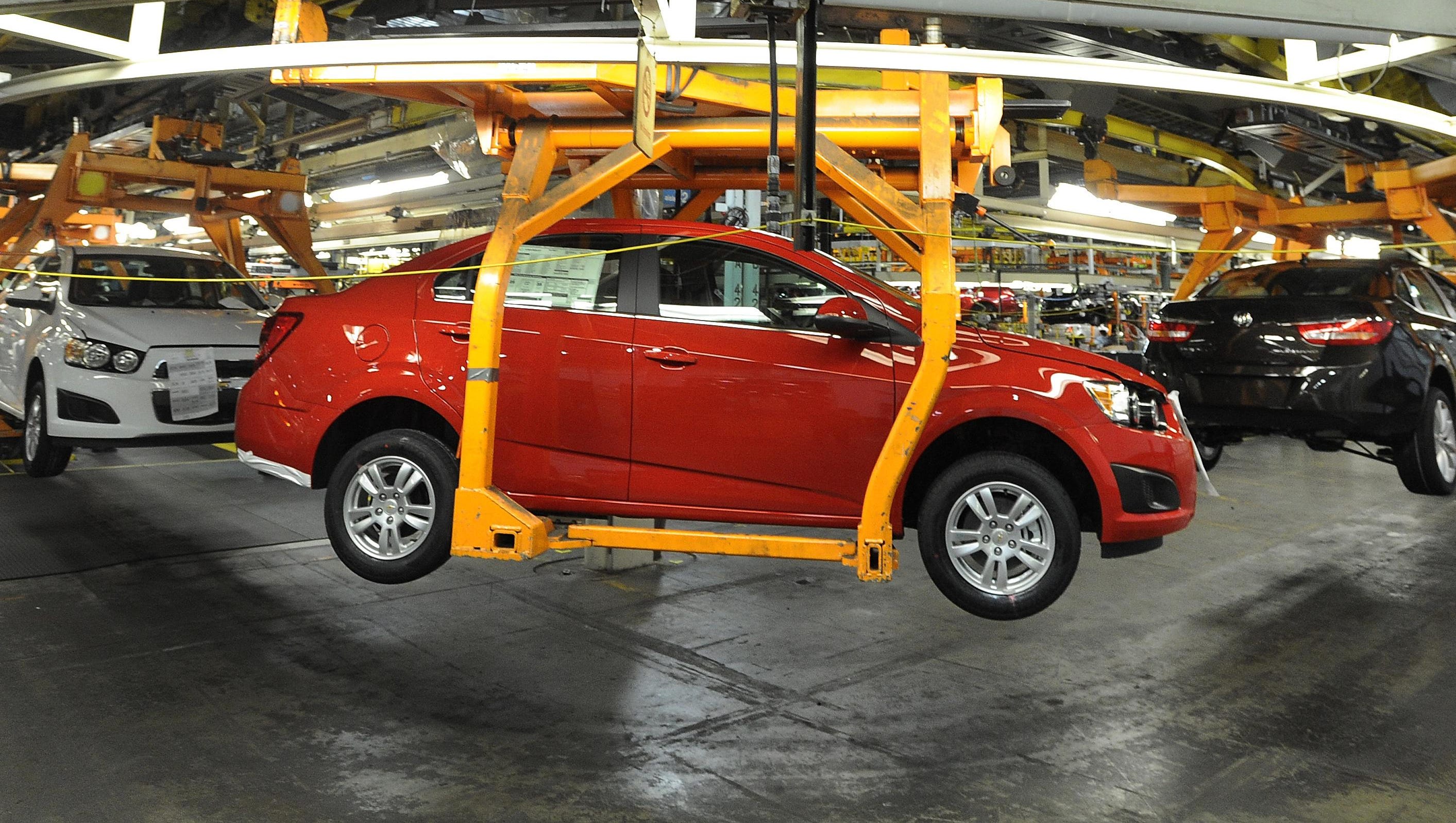GM exec: We’re all-in on sedans
Las Vegas — Amid speculation that General Motors Co. could cut two sedan nameplates in the next five years, the automaker’s top brass says it’s still all-in on the dwindling sedan segment.

That’s not what rival Ford Motor Co. signaled last month during a deep dive into its U.S. product portfolio. The Blue Oval said pickups and SUVs of all sizes would account for nearly 90 percent of Ford’s lineup in the United States, a doubling-down on the Dearborn automaker’s historic truck roots.
“With these car segments, yeah, we’ve seen a decrease, but you’ve also seen an industry that’s growing, and these (car) segments are still worth 2 million vehicles,” Alan Batey, GM’s executive vice president and president of North America, told The Detroit News at a dealer event Wednesday in Las Vegas. “A 2-million-vehicle midsize car market in the U.S. is not a segment that you don’t want to be part of.”
The Wall Street Journal reported Wednesday that GM will end production of the Chevrolet Sonic subcompact car as early as this year, and the full-size Impala could be eliminated in the next few years. Executives gathered in Las Vegas told The News that both the Impala and Sonic – both built in southeast Michigan – are important pieces of GM’s lineup, and both vehicles play a role in meeting a wide-ranging demand across all segments.
“We want to lead, not follow,” Batey said. “The team has done a great job understanding the segments, understanding customer preference and price points, and in delivering products that deliver upon that. Will the portfolio continue to evolve? Absolutely. It has to.”
Both GM and Ford lag crosstown rival Fiat Chrysler Automobiles NV on decisions to cut some car nameplates. In 2016, FCA said it would pare compact sedans from its lineup, effectively driving higher its sales of SUVs over the last year. The decision to cut money-losing sedans in favor of profit-rich SUVs and trucks has proved lucrative for CEO Sergio Marchionne.
The News reported in March that Ford is expected to ax at least two car models — likely the Taurus and the Fiesta — in order to pump the lineup full of SUVs over the next two years. But, in a statement Wednesday, Ford said “passenger cars, including Fiesta and Taurus, remain an important part of our lineup.”
The company in November canceled the 2020 redesign for the North American Fusion. That doesn’t mean Ford will drop the nameplate. Ford executives are rethinking the next-generation Fusion for this region, and that could include shifting the model name to a different vehicle architecture.
The Dearborn automaker also said it would build the next-generation Focus sedan in China, and ship higher-end versions back to U.S. showrooms. The company has not officially announced plans for the North American Fiesta, C-Max or Taurus. The News reported in July that Ford was likely to discontinue the C-Max by early next year.
Automakers might not need to build multiple cars anymore, analysts have said. The Trump administration’s Environmental Protection Agency is moving to review tough Obama-era fuel-economy rules. But Ford, GM and others plan to introduce more hybrid options and full electric vehicles even as American consumers’ ongoing love affair with SUVs and trucks grows.
Cutting some car models that were popular during and in the years after Great Recession could boost the bottom-line for automakers as new vehicle sales begin to plateau. Meantime, Ford CEO Jim Hackett has said spikes in the cost of fuel are less worrisome now than they were during the fuel crisis. Vehicles are more efficient, and automakers will have a slew of electrified powertrains to offer consumers.
The move could pinch consumers in the wallet. SUVs generally cost more than cars, and some of the cars that automakers are expected to eliminate are entry-level vehicles.
Analysts have said repeatedly over the last few months that it would make fiscal sense for U.S. automakers to trim their car options. Ford car sales are down 13.7 percent through the first three months of 2018, following a year when car sales ended down 14.2 percent.
GM’s Impala is down 36.1 percent through the first quarter, and the Sonic is down 21.5 percent. The Malibu sedan and Spark small car are off 2.4 percent and 2.7 percent, respectively. Meantime, the Buick LaCrosse sedan is up 41.7 percent in the first quarter.
“Overall we’re taking our car portfolio and just trying to rightsize to the market because one too many is a bad place to be,” Steve Majoros, marketing director for Chevrolet cars and crossovers, told The News in Las Vegas. “That’s the rule of thumb for all of these products.”
ithibodeau@detroitnews.com
Twitter: @Ian_Thibodeau